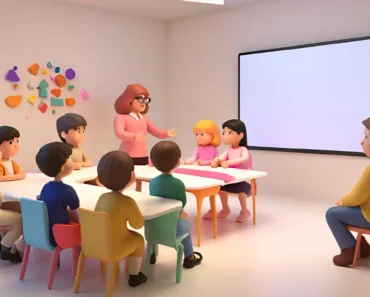Technology shapes how we live, learn, and connect. In U.S. households, the question of Gen Alpha vs. Millennial Parents sparks curiosity: who’s more tech-smart? Generation Alpha, born from 2010 to 2025, grows up with smartphones, AI, and tablets as everyday tools. Their Millennial parents, born between 1980 and 1994, embraced the internet’s rise and mastered early digital tools. Both groups navigate a tech-driven world, but their skills and approaches differ.
This article compares the tech abilities of Gen Alpha and their Millennial parents. We explore how each generation uses technology, their strengths, and challenges. From intuitive app navigation to troubleshooting software, we examine who holds the edge and how families can learn from each other. Let’s dive into this tech-savvy showdown and uncover strategies for thriving in a digital age.
Understanding Generation Alpha’s Tech World
Generation Alpha, born from 2010 to 2025, is the first cohort to grow up entirely in the 21st century. In the U.S., about 45.6 million kids aged 0–11 are active internet users, with 81.4% watching digital video monthly, according to 2024 data. These children, often called digital natives, interact with technology from infancy. Smartphones, tablets, and voice assistants like Alexa feel as natural to them as toys did to past generations.
Gen Alpha’s tech skills shine in intuitive navigation. By age 2, 40% have a tablet; by age 8, nearly one in four owns a cellphone. They excel at using touchscreens, mastering apps like YouTube Kids or Roblox with ease. Their comfort with gamified platforms, like educational apps or augmented reality games, sets them apart. A 2023 study noted that 84% of U.S. students use tech in classrooms, with 60% using school-provided devices. This immersion fosters quick adaptation to new interfaces.
However, Gen Alpha’s skills are narrow. They focus on user-friendly platforms but struggle with deeper technical tasks, like troubleshooting software or understanding system settings. Their reliance on seamless interfaces can limit problem-solving when tech fails. In the Gen Alpha vs. Millennial Parents debate, their intuitive ease is a strength, but their youth restricts their technical depth.
Millennial Parents: Pioneers of the Digital Shift
Millennial parents, aged 31 to 45 in 2025, grew up during the internet’s infancy. They transitioned from dial-up modems to high-speed Wi-Fi, giving them a unique perspective. Unlike Gen Alpha, Millennials learned tech through trial and error, from installing software on clunky PCs to navigating early social media like MySpace. A 2019 Pew Research study found 93% of Millennials own smartphones, and 86% use social media daily, reflecting their tech fluency.
Millennials excel at practical tech skills. Many can troubleshoot router issues, configure software, or use tools like Microsoft Excel and Outlook—skills Gen Alpha hasn’t yet developed. Their experience spans analog and digital worlds, making them adaptable. For example, a 2024 Reddit discussion highlighted Millennials’ ability to fix Wi-Fi or understand hardware specs, skills younger generations often lack.
Yet, Millennials face challenges. Some struggle to keep up with rapidly evolving platforms like TikTok or AI-driven tools that Gen Alpha embraces naturally. In the Gen Alpha vs. Millennial Parents comparison, Millennials hold an edge in technical problem-solving but may lag in adopting cutting-edge, intuitive tech.
Key Differences in Tech Skills
The tech showdown of Gen Alpha vs. Millennial Parents reveals distinct strengths shaped by their environments. Here’s a breakdown of how they differ:
Intuitive vs. Analytical Skills
Gen Alpha navigates apps and devices with natural ease. They pick up new platforms, like gaming apps or voice assistants, without formal training. A 2024 report noted that 92% of Gen Alpha value being themselves, reflected in their confident use of personalized tech. Millennials, however, approach tech analytically. They troubleshoot issues, like resetting a modem or configuring settings, relying on experience from less user-friendly systems.
Platform Familiarity
Gen Alpha gravitates toward immersive, gamified platforms like Roblox or YouTube, where they spend hours daily. Millennials dominate traditional platforms like email or workplace tools. A 2023 study found 75% of Millennial parents try to limit their kids’ social media, showing awareness of digital risks but less fluency in newer platforms.
Learning Curve
Gen Alpha learns by doing, adapting to tech through play. Millennials, shaped by formal IT education or workplace demands, rely on structured learning. This makes Millennials better at complex tasks but slower to adopt emerging tech trends.
These differences highlight that neither generation is inherently smarter. Gen Alpha’s intuitive fluency complements Millennials’ practical expertise, creating opportunities for mutual learning.
Read Also: Why Gen Z Parents Reject ‘Screen-Free’ Childhoods
Challenges of Tech Immersion for Both Generations
While both generations are tech-savvy, they face unique hurdles. For Gen Alpha, excessive screen time—7 to 8 hours daily for over 80% of kids, per a 2024 study—raises concerns about focus and social skills. A 2022 report noted that 20% of U.S. children aged 3–17 have mental health challenges, partly linked to digital overload. Their reliance on intuitive interfaces can also limit problem-solving when tech fails.
Millennial parents face pressure to balance tech use with parenting. A 2023 study found 75% of Millennial parents aim to keep Gen Alpha off social media, reflecting concerns about privacy and mental health. Yet, their own heavy social media use—79% of Millennial moms use it daily—can blur boundaries, reducing emotional availability. Additionally, staying current with AI or gamified platforms can be daunting for Millennials accustomed to older systems.
In the Gen Alpha vs. Millennial Parents dynamic, both groups must navigate a tech-saturated world while addressing these challenges to maintain balance and well-being.
Bridging the Tech Gap in Families
– Set Boundaries: Limit screen time to 2–3 hours daily for kids, using tools like parental controls. Millennials can model healthy tech habits by reducing their own social media use.
– Teach Troubleshooting: Parents can show kids how to fix basic issues, like restarting a router, fostering independence. Simple guides or YouTube tutorials can help.
– Stay Curious: Millennials should try new platforms, like AI tools or gaming apps, to stay relevant. Gen Alpha can teach parents about trending apps, creating a two-way learning dynamic.
– Prioritize Connection: Schedule tech-free family time, like outdoor activities, to balance digital immersion with real-world bonding.These steps empower both generations to grow, ensuring tech enhances rather than hinders family life.
Conclusion: A Shared Tech Journey
Building a Tech-Smart Family
In the Gen Alpha vs. Millennial Parents tech showdown, no single winner emerges. Generation Alpha’s intuitive mastery of apps and devices complements Millennial parents’ practical, problem-solving skills. Both generations bring unique strengths to the table, shaped by their distinct experiences with technology. Gen Alpha adapts to new platforms with ease, while Millennials excel at troubleshooting and navigating complex systems. Challenges like screen overload and staying current with trends affect both, but collaboration can turn differences into opportunities.
By learning from each other, U.S. families can create a balanced, tech-smart environment. Parents and kids can share skills, set healthy boundaries, and prioritize connection. As technology evolves, the Gen Alpha vs. Millennial Parents dynamic will shape how families adapt, ensuring they thrive in a digital world together.
Frequently Asked Questions About Gen Alpha vs. Millennial Parents
How do Gen Alpha’s tech skills differ from Millennial parents?
Gen Alpha excels at intuitive navigation of apps and devices, while Millennials are stronger at troubleshooting and using complex tools like Excel or email systems.
Are Gen Alpha kids too reliant on technology?
Many use devices 7–8 hours daily, raising concerns about focus and social skills. Setting screen time limits helps balance tech use with real-world activities.
Can Millennial parents keep up with new tech trends?
Yes, by exploring platforms like TikTok or AI tools with their kids, Millennials can stay current while leveraging their practical tech experience.
How can families bridge the tech gap?
Families can learn together, with kids teaching parents about apps and parents showing kids how to troubleshoot, fostering mutual growth.
Does tech use affect family bonding?
Excessive screen time can reduce connection, but tech-free activities like family game nights or outdoor time strengthen relationships.





